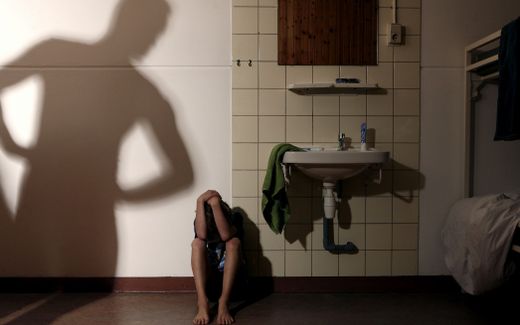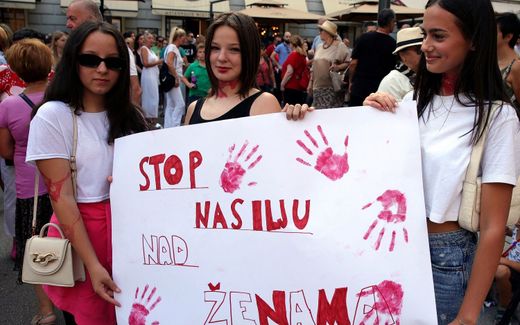If legal consent can help protect women, let’s do it

Protest against violence against women in Paris, France. Photo Canva.com, EPA, Christophe Petit Tesson
Christian Life
To know more about a real tragic rape case, take the Mazan trial in France. For Marc Derœux, it is more than enough reason to plead for consent to be enshrined in law.
Stay up to date with Christian news in Europe? Sign up for CNE’s newsletter.
November 25 marks the annual International Day for the Elimination of Violence Against Women. This day was established by the United Nations in 1999 to honour the Mirabal sisters, Dominican activists who were brutally murdered for opposing dictatorship. At the moment, it is a pivotal moment to raise awareness about gender-based violence, including domestic abuse, sexual assaults, female genital mutilation, forced marriages, and exploitation through prostitution.
In France, the statistics reveal the gravity of the issue. In 2023, police and gendarmerie recorded 444,700 victims of physical violence and 114,700 victims of sexual violence, a 7 per cent increase from 2022. These alarming numbers hide an even darker reality, as many victims remain silent, paralysed by fear or shame.
A striking and painful example of this reality is the Mazan rape trial, an unprecedented case that has shocked France and the wider world.
Shock
Since it began on September 2, 2023, the Mazan rape trial has gripped public attention. For nearly a decade, Gisèle Pélicot, now 71, was repeatedly subjected to sexual violence orchestrated by her husband, Dominique Pélicot. He drugged his wife to hand her over to dozens of men he met on an online dating platform.
Investigators have identified over 200 rapes committed between 2011 and 2020, involving 51 aggressors. Dominique Pélicot and these men are currently being tried by the criminal court in Vaucluse, facing up to 20 years in prison.
This extraordinary trial has sparked widespread anger and mobilisation. On September 14, protests took place across France in support of Gisèle Pélicot. This tragedy highlights not only the horror of the acts but also the societal failures in addressing violence against women.
Breaking the silence
By rejecting a closed-door trial, Gisèle Pélicot declared her intent to “shift the shame to the perpetrators.” By making her story public, she challenges us all to confront the culture of silence that often surrounds sexual violence.

This silence is frequently reinforced by an unjust sense of guilt placed on victims. They are sometimes blamed for provoking their assault through their clothing, behaviour, or perceived passivity. These prejudices, present in society and even in some religious circles, perpetuate denial and injustice.
As Christians, we must reject such narratives. Every victim deserves to be heard, supported, and protected. The love and compassion Jesus Christ showed for the vulnerable should inspire us to welcome testimonies with kindness and without judgment, and to act to prevent recurrence.
Consent
The Mazan case also reignites the debate on consent in French law. Currently, for rape or sexual assault to be recognised, the victim must prove the presence of coercion, violence, threats, or surprise. This burden of proof often discourages victims, making justice inaccessible.
A legislative shift could reverse this burden, requiring the accused to demonstrate that explicit consent was obtained. Because in matters of sexuality, silence never equals consent.
For Christians, this legal necessity should also be a moral imperative. Nothing in the Bible justifies imposed sexuality, even within marriage. Sexual intimacy should be a consensual and harmonious act, reflecting the mutual respect intended by God.
Mission for churches
The Mazan trial reveals a chilling reality: ordinary men from various backgrounds participated in these crimes without questioning the severity of their actions. This raises a fundamental question: Can we recognise danger around us and intervene?
This trial especially challenges us as churches. Are we prepared to protect the most vulnerable? To expose abuse and support victims? Jesus calls us to care for the “little ones,” those fragile individuals at risk of being crushed by violence:
“If anyone causes one of these little ones –those who believe in me– to stumble, it would be better for them to have a large millstone hung around their neck [...]” (Matthew 18:6-7).
In our communities and surroundings, some people may be in danger. Our personal and collective responsibility is to protect them, offer them listening and support, and actively combat all forms of abuse.
The testimony of Gisèle Pélicot must propel us to action. By answering this call, we not only honour human dignity but also embody the love and justice at the heart of the Gospel message.
Related Articles










